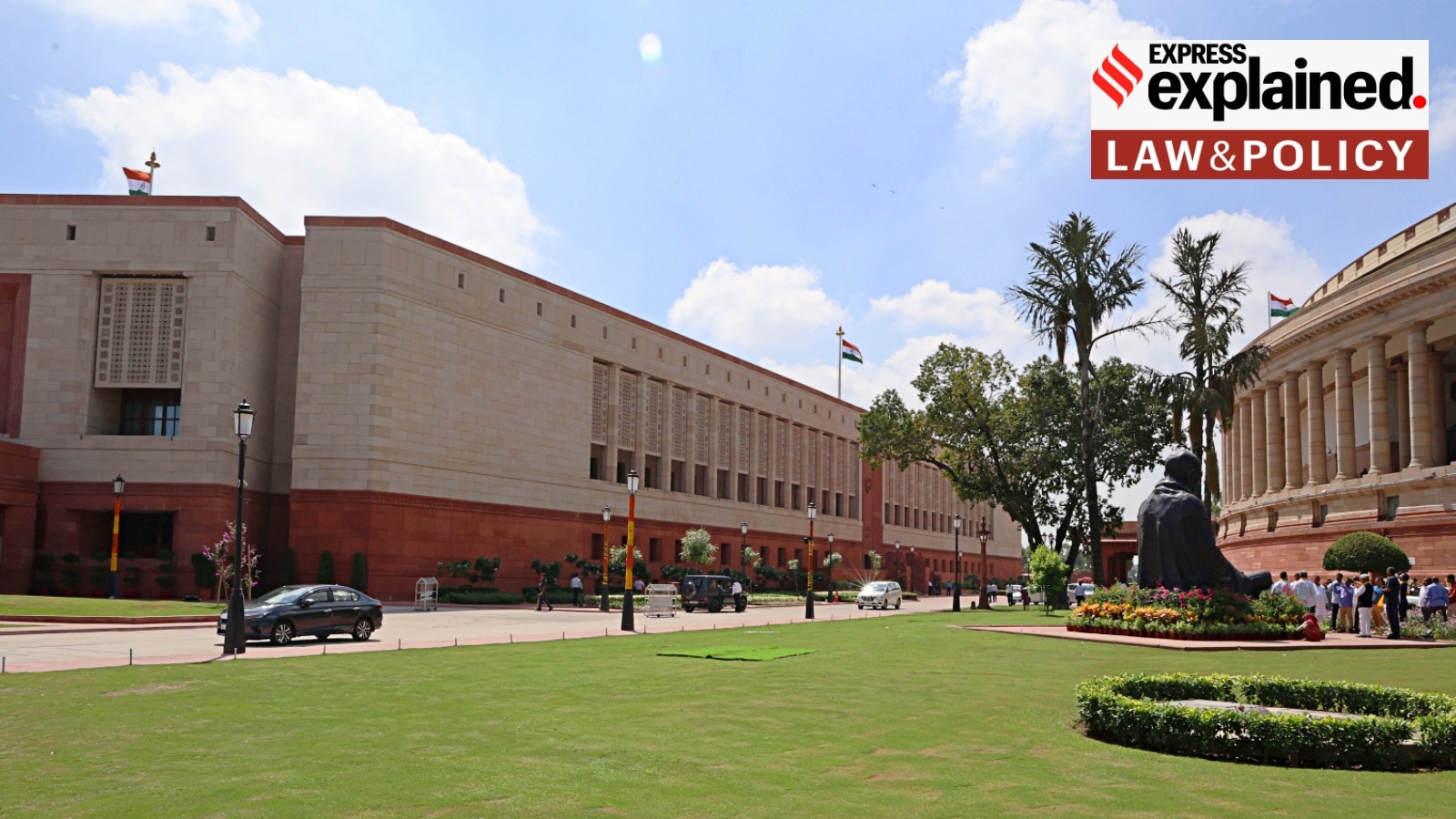Bribes for votes: SC says MLAs and MPs not immune from prosecution. What was the case?
Currently, legislators are protected from criminal prosecution for bribes in connection with their speech and votes in Parliament and Legislative Assemblies. Why did the SC reconsider the issue?
 In 'P.V. Narasimha Rao v State (CBI/SPE)' (1998), the SC held that legislators enjoy immunity from criminal prosecution for bribery in matters connected to their speech and votes in Parliament and Legislative Assemblies. (Express Photo by Renuka Puri)
In 'P.V. Narasimha Rao v State (CBI/SPE)' (1998), the SC held that legislators enjoy immunity from criminal prosecution for bribery in matters connected to their speech and votes in Parliament and Legislative Assemblies. (Express Photo by Renuka Puri)A seven-judge Constitution Bench of the Supreme Court on Monday (March 4) disagreed with and overruled the majority judgment in the more than quarter-century-old Jharkhand Mukti Morcha (JMM) bribery case, in which the Supreme Court had held that members of the legislature enjoy immunity from being charged with bribery in relation to the way they vote or speak in the House.
The details of the judgment are awaited. Here, we explain what this landmark case was about.
Article 194(2) of the Constitution states:
“No member of the Legislature of a State shall be liable to any proceedings in any court in respect of anything said or any vote given by him in the Legislature or any committee thereof, and no person shall be so liable in respect of the publication by or under the authority of a House of such a Legislature of any report, paper, votes or proceedings.” Article 105(2) provides identical protections to members of Parliament.
In 1998, a five-judge bench in P.V. Narasimha Rao v State (CBI/SPE) interpreted these articles literally and held that legislators enjoy immunity from criminal prosecution for bribery in matters connected to their speech and votes in Parliament and Legislative Assemblies.
The seven-judge bench that overruled this judgment was led by Chief Justice of India D.Y. Chandrachud. Arguments were heard over two days in the first week of October 2023.
Why was the court reconsidering the Narasimha case?
An MLA from the Jharkhand Mukti Morcha (JMM), Sita Soren, was accused of accepting a bribe in return for her vote for a candidate during the 2012 Rajya Sabha elections. In 2014, the Jharkhand High Court refused to quash the case filed against her by the Central Bureau of Investigation (CBI), leading to an appeal at the Supreme Court that same year.
A bench comprising then CJI Ranjan Gogoi, alongside Justices Abdul Nazeer and Sanjiv Khanna, heard the appeal in March 2019 and observed that the decision in P.V. Narasimha dealt directly with such cases. However, the bench took note of the fact that the case was decided by a narrow margin (a 3:2 split among the five judges) and stated that the issue was a matter of “substantial public importance”. As a result, they referred the matter to a larger bench.
In September 2023, a five-judge bench led by CJI Chandrachud demarcated three issues that needed to be reconsidered from the case and referred the case to a seven-judge bench.
First, at a glance, the bench observed that the purpose of Articles 194(2) and 105(2) was to allow legislators to cast their votes without fear of reprisal, not to protect them from possible violations of criminal law.
Second, taking note of Justice S.C. Agarwal’s dissent in P.V. Narasimha, the decision in that case would seemingly protect bribe-takers who vote in accordance with the purpose of the bribe, and not those who act contrary to the purpose of the bribe.
Last, relying on the same dissent, the bench observed that there is a need to decide if the offence of bribery is complete when the payment of the bribe is made or when the bribe is acted upon by the legislator.
What were the arguments in favour of immunity for legislators?
Senior Advocate Raju Ramachandran, appearing for Sita Soren, argued that legislators have absolute protection from court proceedings under the concerned articles. The power to expel legislators for the moral implications of their actions has been given to the Speaker of Parliament and the Legislative Assembly, he argued.
He also attempted to pick apart Justice Agarwal’s dissent in P.V. Narasimha. Justice Agarwal stated that the phrase “in respect of anything said or any vote given” should be read as “arising out of anything said or any vote given”.
This, according to Justice Agarwal, would shift the situation from a space where there is no immunity if a legislator does not give a speech or cast a vote, to a situation where there is no immunity for any act that occurred before a speech or a vote to place all bribe-takers on the same pedestal, regardless of their actions after taking the bribe.
Ramachandran argued against this interpretation, stating “We would be doing violence to language if we read ‘in respect of’ in this manner, only due to moral outrage.” He also highlighted how the majority in P.V. Narasimha, despite speaking against the act of bribe-taking, chose to “read the Constitution as written”.
Though Attorney General R. Vankataramani argued against the decision in P.V. Narasimha, he was also of the opinion that Sita Soren’s case was unrelated to that judgment. He argued that votes given in the Rajya Sabha elections are distinct from votes given as a part of the legislative process to turn a bill into a law. As Soren’s case deals with Rajya Sabha elections, the decision in P.V. Narasimha has no bearing on it.
What were the arguments in favour of P.V. Narasimha being overruled?
The majority in P.V. Narasimha decided to give a broad meaning to the phrase “in respect of…” in Articles 105(2) and 194(2). Essentially, they held that as long as there is a connection between the bribe taken and the vote or speech given, the legislator is protected from criminal prosecution.
Senior Advocate P.S. Patwalia disagreed with this understanding and argued that the offence of bribery is “complete” the moment money is accepted in exchange for a promise to act a certain way. Whether said promise is carried out after the money is given is irrelevant to proving that someone is guilty of bribery.
Therefore, a legislator has committed an offence the moment they accepted the bribe and should be held accountable, regardless of whether the legislator then chooses to make a certain speech or vote in a certain way.
Senior Advocate Gopal Sankaranarayanan argued that the court must distinguish between legitimate and illegitimate actions by legislators. Illegitimate actions which are prompted as a “consequence of crime”, like bribes for votes, that directly interfere with the legislative processes should not be protected.
Solicitor General Tushar Mehta argued that the majority in P.V. Narasimha failed to consider the Prevention of Corruption Act, 1988 (PCA) in its decision. He pointed out that the judgement protects bribe-takers after there is “performance” (a speech or vote is given based on the bribe), even though Section 7 of the PCA specifically punishes public servants who accept bribes “with the intention to” or “as a reward for” performing their public duty improperly or dishonestly.
- 01
- 02
- 03
- 04
- 05






































